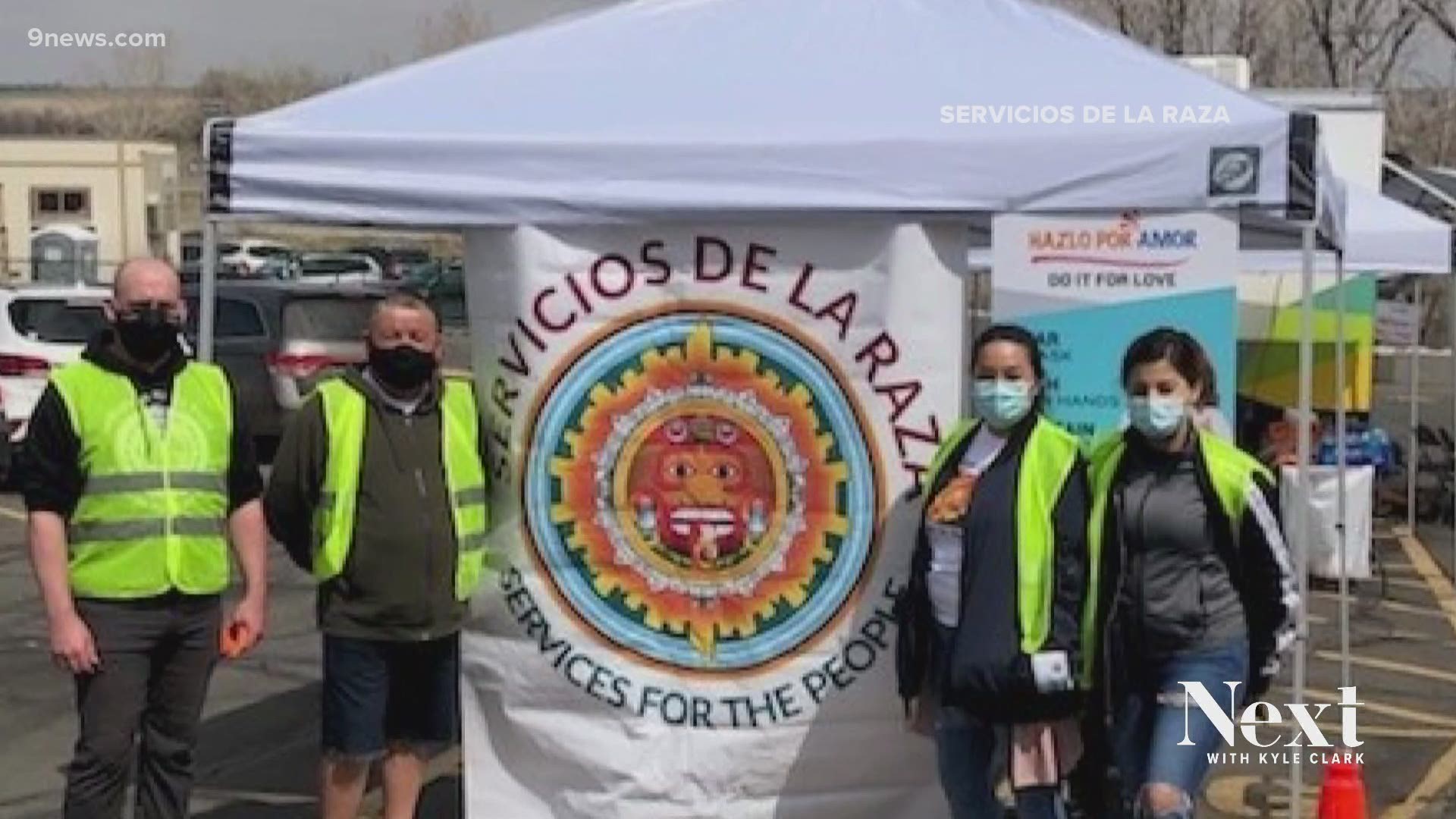DENVER — As fewer people schedule appointments for a COVID-19 vaccine, leaders in public health are strategizing how to reach people who may be unsure about getting vaccinated.
One of the largest disparities in Colorado vaccine distribution exists in the Latino population. According to state data, people who identify as Latino represent 8% of those who’ve received the vaccine, while the same group represents nearly 22% of the state population.
“Our communities don’t open doors to be counted so I usually think that we’re larger than 20%in the state, which means that disparity is even greater,” said Rudy Gonzalez, executive director of Servicios de la Raza, one of the state’s largest service provider and advocacy groups for the Latino community.
Gonzalez said his organization has helped vaccinate 6,000 people with a first dose and 3,500 others with two doses. Servicios de la Raza works with the state health department to schedule clinics in underserved areas, bringing the vaccine into communities.
“Let’s get our leaders, our community leadership within those communities to help mobilize, to organize but let’s resource them,” Gonzalez said. “We need to resource them -- we can’t ask people to do things for free.”
Gonzalez listed several issues leading to hesitancy in the Latino community, including a lack of transportation and unforgiving work schedules.
“We work six, maybe seven days a week,” Gonzalez said. “Only 11% of our communities can work virtually remotely, so think about that.”
Oftentimes people have to take a day off of work to receive the vaccine. Side effects of the vaccine can lead to an additional day off.
“Let’s do an economic relief of giving them four days off over 28 days,” Gonzalez suggested. “It’s got to be figured out with the service industry, with agriculture, the state can really play a big part in that.”
Last week, President Joe Biden announced a tax credit for employers with fewer than 500 employees. It would grant the employers financial relief to cover the cost of employees taking time off to get the vaccine and time to recover from it.
Gonzalez said the state could do more to incentivize employers to allow their employees the time.
He also said trusted community organizations should take the lead in running vaccination clinics with support and resources from the state.
“I think it will [close the disparity gap], but it takes absolute consistency and that takes absolute consistent resources,” Gonzalez said.
SUGGESTED VIDEOS: Full Episodes of Next with Kyle Clark

